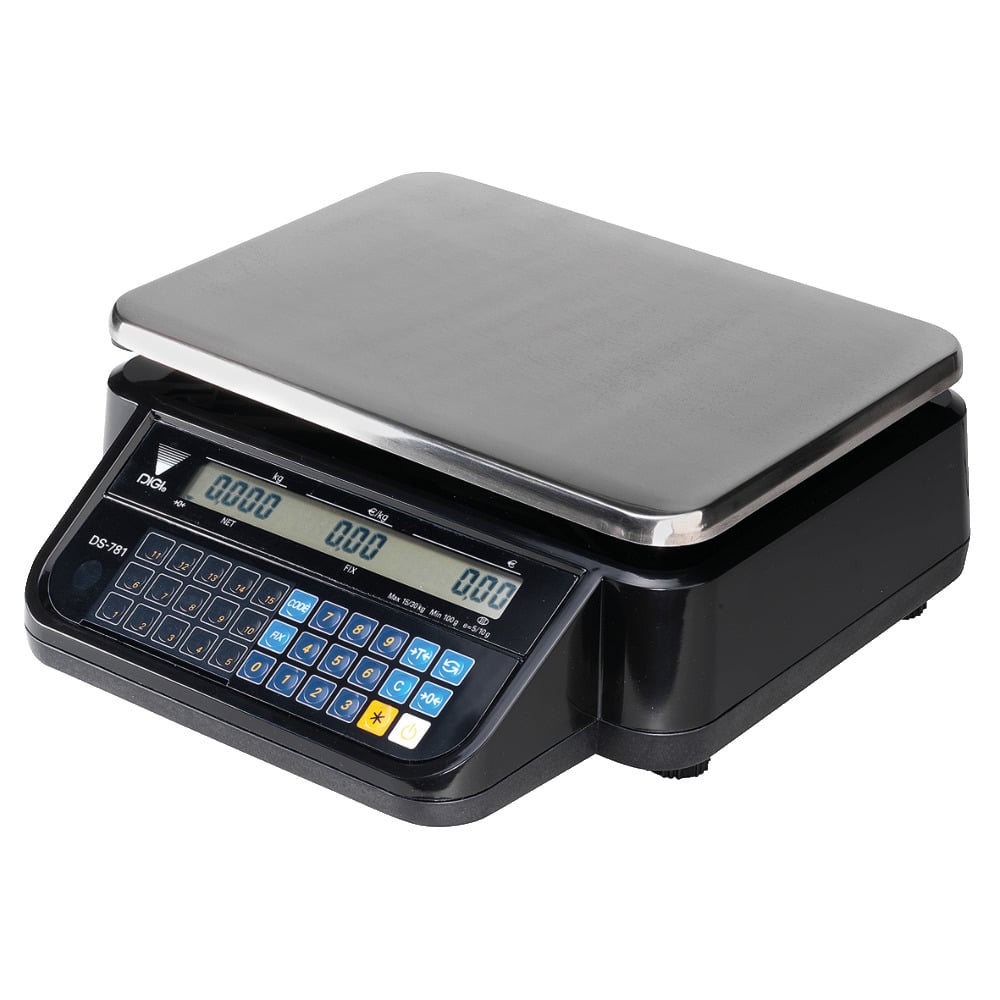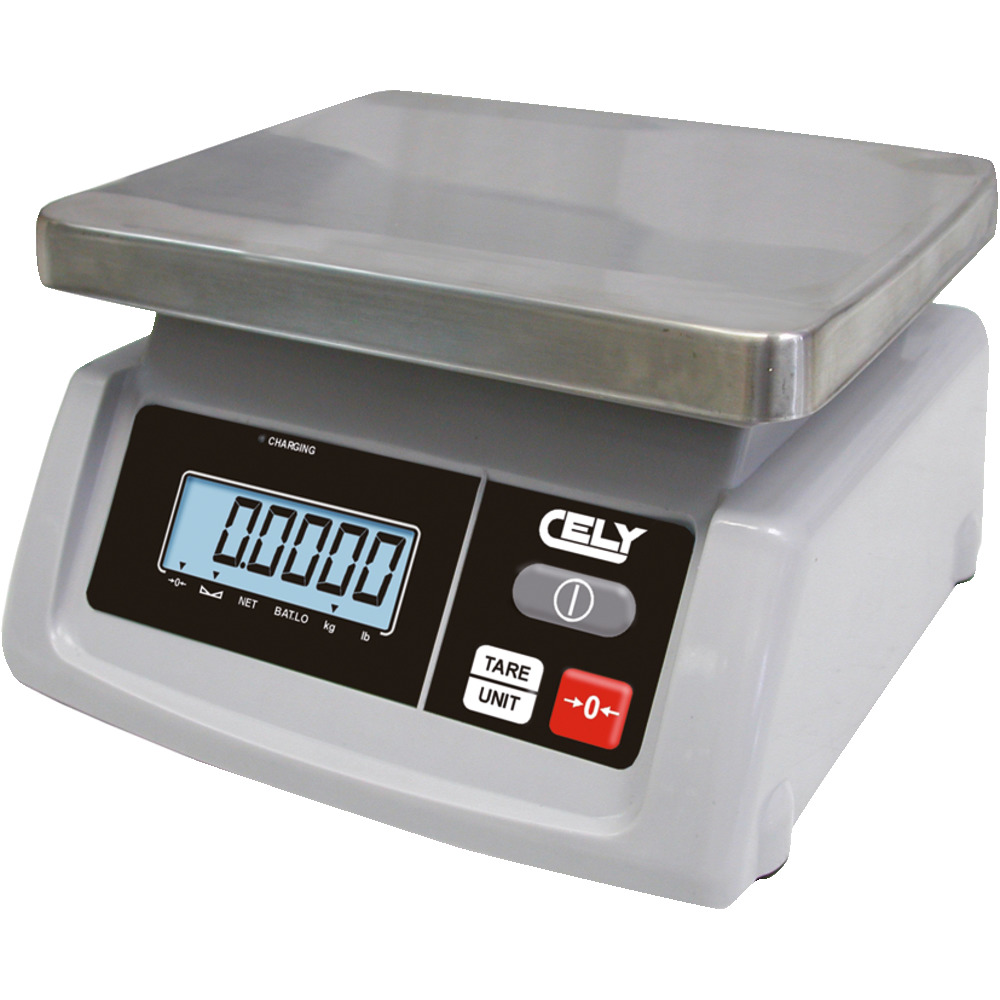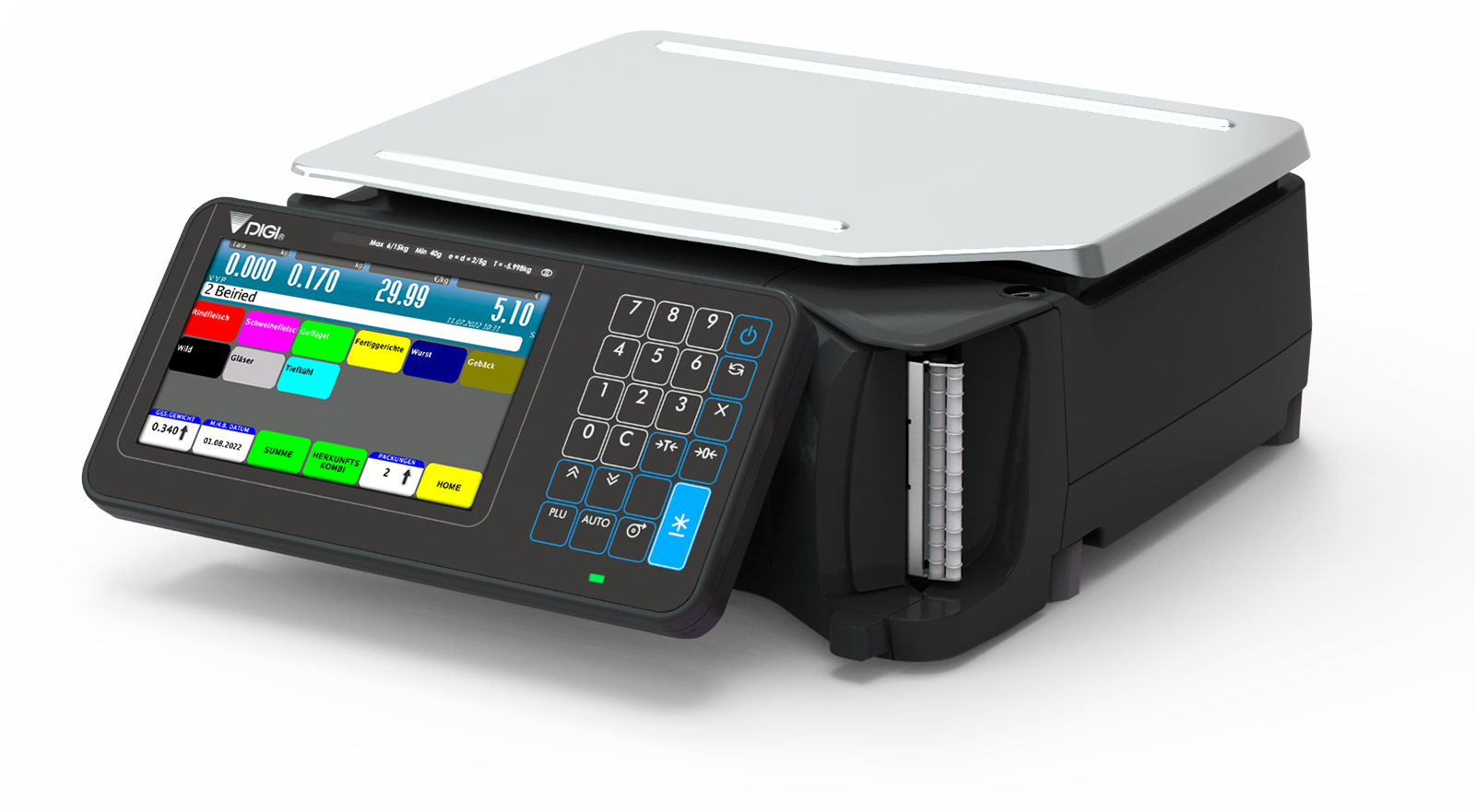23/04/2024
Price computing scales
Whether you are selling crunchy apples at the weekly market, offering flavoursome cheese in your farm shop, portioning juicy steaks in the butcher's shop or bottling fine spices in small tins - a good price calculating scale is your best friend. It weighs, calculates and ensures that you get exactly what it's worth for every gram.
1. weighing ranges and accuracy
Price computing scales are available in different weighing ranges and accuracies to meet the requirements of different applications. Here are some common weighing ranges:
- 0.5 g / 0.1 g: These scales are suitable for precise measurements and are often used in laboratories.
- 1g / 0.01g: Ideal for use in pharmacies, laboratories and industrial applications where high accuracy is required.
- 10 g / 1g: Suitable for general retail and the food industry, for weighing food, packaging and other products.
- 20kg / 5g or 30kg / 10g: These scales are designed for use with larger quantities and heavier items, such as wholesale or warehousing.
2. functions and properties
The performance and versatility of modern price computing scales is optimised by a range of functions. The following functions should be noted here:
- Tare function: Allows the weight of the container or packaging to be compensated so that only the weight of the contents is measured.
- Piece counting: Enables automatic calculation of the number of items based on their weight, which is particularly useful when products are sold in large quantities.
- Price calculation: Allows you to calculate the price based on the weight and the preset price per unit, which speeds up the checkout process and reduces errors.
- Memory function: Saves frequently used items and their prices for faster access during operation.
- LCD display: Large, easy-to-read display for easy reading of the measurement results.
- Mains and battery operation: Flexibility in the power supply, particularly useful for mobile use or in the event of power failures.
3. care and maintenance
To ensure the accuracy and longevity of your price computing scales, you should carry out regular care and maintenance. This includes
- Cleaning: Keep the scale clean and free of dirt, dust and residues that could affect accuracy.
- Check: Check all functions and settings of the scale regularly to ensure that it is working properly.
- Protection: Avoid knocks, falls and excessive loads that could damage the scales.
4. selection of the right price calculation scale
- Weighing range & accuracy: The scale should measure exactly what you need - neither too much nor too little. Make sure you have the right weighing capacity and precise measurements.
- Functions: Do you need additional functions such as taring, memory locations or an interface for POS systems? Choose a scale that optimally supports your processes.
- Power supply: Depending on the location, a mains or battery-powered scale may be more practical - especially for mobile use at markets.
- Robustness & durability: A stable construction and high-quality materials ensure a long service life - particularly important in demanding environments.



